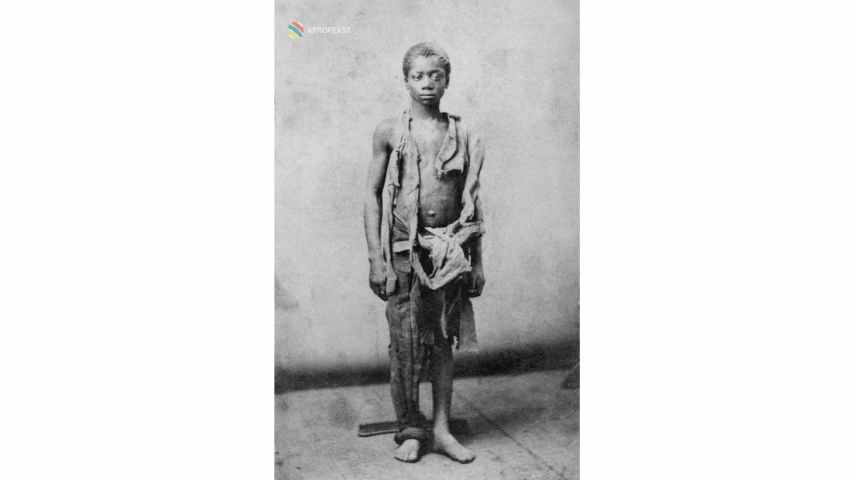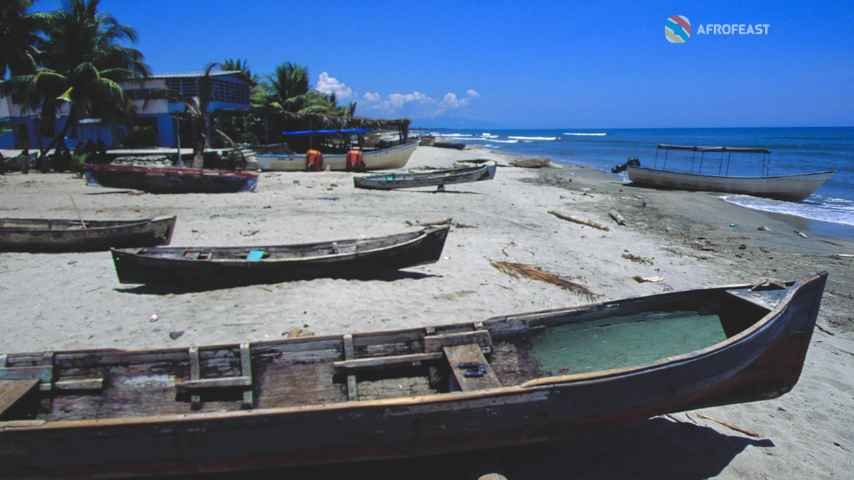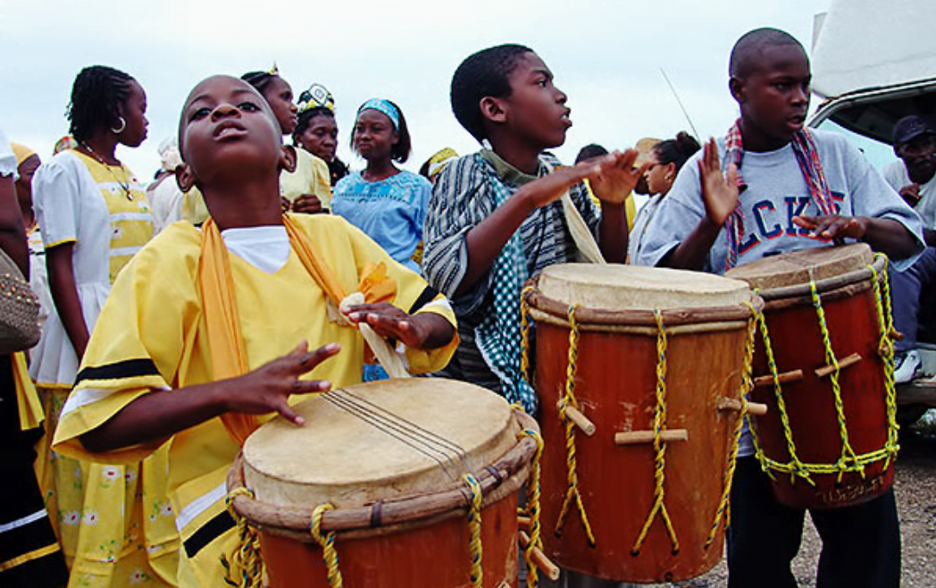Afro-Caribbean Religions
Afro-Caribbean religions are deeply rooted in African traditions. The transatlantic slave trade forcibly brought Africans to the Caribbean, bringing with them a rich cultural and spiritual heritage that laid the foundation for Afro-Caribbean spirituality.

A crucial influence on the spiritual fabric of the Caribbean was the transmission of African spiritual beliefs through oral traditions. Enslaved individuals inherited a profound spiritual consciousness shaped by passed-down myths, folklore, and rituals across generations, forming the basis for Caribbean spiritual practices.
The sharing of spiritual knowledge through oral history is integral to Afro-Caribbean culture, with elders playing a vital role in passing on stories, myths, and the significance of rituals to ensure the continuity of ancestral connections.
Additionally, the diverse pantheon of African deities found a cultural home in the Caribbean, undergoing syncretisation with Catholic saints and becoming central figures in Afro-Caribbean religions. This syncretic fusion enriched and diversified the spiritual landscape of the region, contributing to the unique character of Afro-Caribbean spirituality.
1. Vincentians Taste Garifuna Culture

The forced convergence of African, Indigenous, and European cultures in the Caribbean gave rise to syncretic religions. This blending of diverse elements resulted in unique spiritual practices that preserved essential aspects of African heritage while adapting to the new environment.
Despite the harsh conditions of slavery, Afro-Caribbean communities resiliently maintained sacred spaces and rituals, serving as sources of strength, identity, and resistance, embodying profound cultural resilience.
Voodoo, Santería, and Candomblé, rooted in Haiti, Cuba, and Brazil, exemplify these complex spiritual systems shaped by the fusion of African, Indigenous, and European influences. These religions showcase the resilience and adaptability of Afro-Caribbean communities through diverse pantheons, elaborate rituals, and a syncretic nature.
Common threads include the blending of cultural elements and the role of these practices in preserving identity amidst historical challenges.
2. Resilient Practices in Slavery and Colonialism
The Transatlantic Slave Trade played a pivotal role in shaping Voodoo in the Caribbean. The millions of Africans forced into the region sought refuge and connection to their ancestral heritage amid the harsh conditions of enslavement. Resilient and adaptive, they blended their indigenous Voodoo beliefs with the imposed Christianity, resulting in a nuanced form of Voodoo that served as both a spiritual sanctuary and a testament to cultural resilience.
Despite the challenges, Voodoo in the Caribbean became a clandestine expression of resistance, fostering identity and solidarity within oppressed communities, evolving into a powerful force of cultural preservation and spiritual empowerment during the era of slavery.
3. A Monument to those lost in the Atlantic Slave Trade
In contemporary times, Afro-Caribbean sacred rituals continue to foster resilience. Passed down through oral traditions, they embody a living testament to the strength and identity of communities. Practitioners play a pivotal role as custodians, ensuring the transmission of stories and the profound significance of these rituals.
The unbroken thread thus becomes a narrative of cultural continuity and strength, empowering future generations to navigate their identity with unwavering resilience.
4. Black children are the future

Family traditions are crucial for preserving and passing on sacred rituals. They create a deep sense of belonging and cultural continuity within the family. These shared practices become more than mere actions; they embody a collective experience that binds generations together.
Within the framework of Afro-Caribbean families, engaging in sacred rituals is not just a personal journey but a communal one, creating a sense of unity and shared identity.
Children within many Afro-Caribbean families participate in the rituals and absorb the meanings and significance behind each practice.
Through this immersive experience, they gain a profound understanding of their African heritage, establishing a connection beyond the mere physical aspects of the rituals. The intergenerational transfer of knowledge and traditions becomes a vehicle for cultural education, instilling a strong sense of pride and identity.
Voodoo Festivals: Celebrating Afro-Caribbean Spiritual Roots

